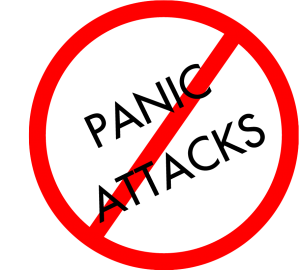Panic Attacks. By Our “Cool as a Cucumber” Student Pharmacist, Jin Kim.
Have you ever experienced a panic attack?
People who have had a panic attack describe it as the scariest experience of all time. During a panic attack, these people believe they are going to die within the next few minutes. They think something serious is happening, such as a heart attack. These grave thoughts about dying are due to both the physical and psychological symptoms of the attacks.
What can you do if you have a panic attack?
To combat a panic attack, try to breathe out slowly as this will stop hyperventilation. Most people breathe fast during a panic attack and take in too much oxygen. The hyperventilation then leads to a blood acidity imbalance and makes a person feel lightheaded and as if they are going to faint.
Knowing that you will get through a panic attack and be okay afterwards will help you calm down. Having a panic attack cannot physically hurt you; it can only make you very fearful.
Panic attacks lead to a panic disorder when you have multiple panic attacks or are constantly worrying about having them for more than a month.
The most effective way to treat panic disorder is through a combination of Cognitive Behavioral Therapy (CBT) and medications.
Usually, the first choice of medications for panic disorder are in a drug class called “selective serotonin re-uptake inhibitors” or SSRIs. SSRIs cause an increase of serotonin in the brain which helps to relieve anxiety. These drugs include fluoxetine (Prozac), paroxetine (Paxil), and sertraline (Zoloft).
Quick acting benzodiazepines, anti-anxiety medications that are also used as sleep aids, can also be used at the time of a panic attack to help stop the symptoms. Alprazolam (Xanax) and lorazepam (Ativan) are examples of benzodiazepine drugs that are typically used for short term therapy.
If you have a panic disorder and want to do something about it besides behavioral therapy and medications, regular exercise has been found to help. A recent study showed that aerobic exercise may prevent the frequency of panic attacks.
You also need to continuously educate yourself about panic attacks and broaden your knowledge. Through constant education, you will learn facts that will allow you to distinguish between a heart attack and a panic attack.
Finally, give yourself plenty of time to recover from the panic attack after it happens. Panic disorders do not go away in a couple of days, so don’t be discouraged if you have another attack.



